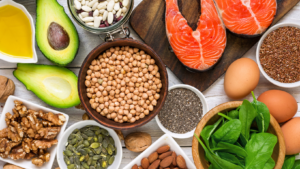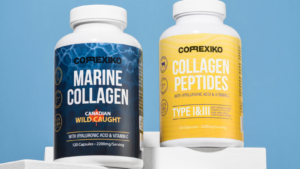Strength athletes know that building muscle isn’t just about lifting heavy weights; it’s also about what they eat, especially on rest days. While training days focus on fueling workouts, rest days present a unique opportunity to optimize recovery and muscle growth. The right nutrition plan can make all the difference in achieving peak performance and maintaining muscle mass.
On rest days, the body’s energy demands shift, but the need for essential nutrients remains crucial. Protein intake plays a vital role in muscle repair, while carbohydrates help replenish glycogen stores. Healthy fats support hormone production and overall recovery. Balancing these macronutrients ensures athletes continue to build strength even when they’re not actively training.
Understanding the nuances of rest day nutrition can enhance an athlete’s performance and longevity in their sport. By focusing on nutrient timing and quality, strength athletes can maximize their gains and set the stage for more effective training sessions ahead.
How Can Strength Athletes Tailor Their Nutrition Plan For Muscle Recovery On Rest Days?
Nutrition plays a pivotal role in maximizing recovery for strength athletes on rest days. Proper protein intake aids muscle repair by providing essential amino acids. Carbohydrates replenish glycogen stores depleted during training, ensuring sustained energy levels. Healthy fats contribute to hormone production, which is vital for recovery processes. Micronutrients like vitamins and minerals support immune function, reducing downtime from illness. Maintaining a balanced diet during rest days ensures muscle growth and prepares the body for upcoming training sessions.
Key Nutritional Components for Muscle Recovery

Strength athletes require a comprehensive balance of nutrients for muscle recovery on rest days. Protein promotes muscle repair and growth by supplying essential amino acids. Carbohydrates replenish glycogen stores, ensuring energy preservation. Omega-3s and other healthy fats aid hormone regulation, crucial for repairing tissues. Antioxidant-rich foods, including berries and leafy greens, combat oxidative stress. Vitamins such as B and C, along with minerals like magnesium, support cellular functions and boost immunity. Adequate hydration maintains nutrient transportation and metabolic processes, underpinning effective recovery.
Timing and Frequency of Meals

Strength athletes should maintain consistent meal timing on rest days. Eating every 3-4 hours ensures a steady supply of nutrients, which supports muscle recovery. Each meal should include a balance of macronutrients, with emphasis on protein to optimize repair and growth. A nutrient-dense breakfast jumpstarts metabolism and should be followed by evenly spaced meals and snacks. Consistent meal frequency helps regulate blood sugar levels and prevents energy dips. By distributing meals throughout the day, athletes ensure adequate nutrient availability for muscle maintenance.
Hydration and Its Impact on Muscle Recovery
Proper hydration aids in muscle recovery by enhancing nutrient transportation and waste removal. Muscle cells, primarily composed of water, rely on adequate hydration for optimal function. Insufficient water intake leads to decreased performance, increased fatigue, and prolonged recovery times. Consuming water consistently throughout rest days prevents dehydration and supports metabolic activities. Electrolytes, such as sodium and potassium, help maintain fluid balance and prevent cramps. Including hydrating foods like watermelon and cucumber can further enhance fluid intake. Optimal hydration levels ensure efficient recovery and prepare muscles for future exertion.
Supplements to Consider

Strength athletes may consider certain supplements to enhance muscle recovery on rest days. Protein powders, such as whey and casein, offer convenient ways to meet protein needs. Branched-chain amino acids (BCAAs) support muscle protein synthesis and reduce fatigue. Creatine, proven to increase muscle energy reserves, may also aid recovery. Omega-3 supplements can regulate inflammation, supported by their hormone balancing properties. Micronutrient supplements like magnesium and vitamin D contribute to optimal muscle function by promoting cellular processes. Athletes should consult professionals to ensure safe and effective supplementation tailored to individual needs.
Common Mistakes to Avoid
Strength athletes often overlook the importance of nutrition on rest days which can hinder recovery and muscle growth. One common mistake is neglecting protein intake assuming it’s only crucial on training days. Failing to replenish glycogen stores with adequate carbohydrates can also lead to energy deficits. Additionally underestimating the role of healthy fats can disrupt hormone production essential for recovery. Skipping meals or not maintaining meal frequency may result in nutrient gaps affecting muscle repair. Hydration is another area where athletes falter as inadequate water intake can impair nutrient transportation and prolong recovery. Lastly relying solely on supplements without a balanced diet can limit their effectiveness. By avoiding these pitfalls athletes can optimize their rest day nutrition supporting muscle recovery and enhancing future performance.

